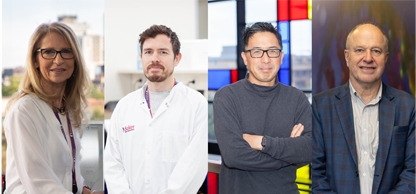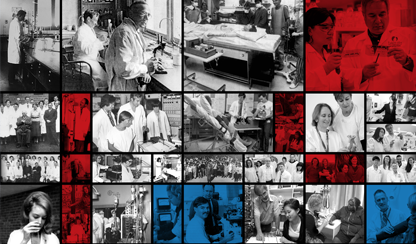03 September 2020
Institute news
The Baker Department of Cardiometabolic Health’s first PhD student will use machine learning to crunch data on more than 100,000 young people, developing a predictive index to identify early vascular ageing.
 The project will apply Terrence Sanchez Fong’s research exploring how machine learning can be used in clinical predictive modelling, with the new index to identify those who are vulnerable to developing cardiovascular disease later in life.
The project will apply Terrence Sanchez Fong’s research exploring how machine learning can be used in clinical predictive modelling, with the new index to identify those who are vulnerable to developing cardiovascular disease later in life.
Vascular ageing is increasingly recognised as an independent risk factor for cardiovascular disease, and refers to the age-related deterioration in the structure of our blood vessels.
This will be the first large-scale study to determine which specific factors contribute to accelerated vascular ageing in early life.
Terence will use machine learning to process large amounts of international data gathered by the Youth Vascular Consortium from children, teenagers and young adults, and then develop reference values for the vascular ageing index.
“Machine learning is an intersection of data science and statistics. It incorporates technology with statistical knowledge to bring meaning to the large amounts of data we now have at our fingertips,” Terence said.
“Considered a subset of artificial intelligence, machine learning is becoming more integrated with health research as our understanding develops.
“I’m grateful for the opportunity to be able to give back to the community, to develop something meaningful in this emerging field.”
Terence has a Bachelor of Science (Physiology) from Monash University. He completed his Honours year at the Baker Institute, after an internship with the Institute in 2018 inspired him to look towards a career in medical research.
“The internship really opened up my eyes to all the kinds of amazing research happening here in Australia and internationally,” he said. “I’m a nerd at heart, and I do love learning.”
Surprisingly though, Terence was not really interested in maths at school, or even at university. It was only in his Honours year that statistics started to stick, thanks to a passionate professor.
For now, statistics and coding is his focus. “It’s exciting to be part of the new Baker Department for Cardiometabolic Health, and access different perspectives,” he said.
But when the reading, writing and number crunching get too much, he plans to take a break to indulge his other passion — bouldering — or at least daydream about it!
“To me bouldering is like human Tetris. It’s a great physical outlet,” Terence said.
The Baker Department of Cardiometabolic Health is part of Melbourne Medical School, a collaboration between the Baker Institute and the University of Melbourne.





